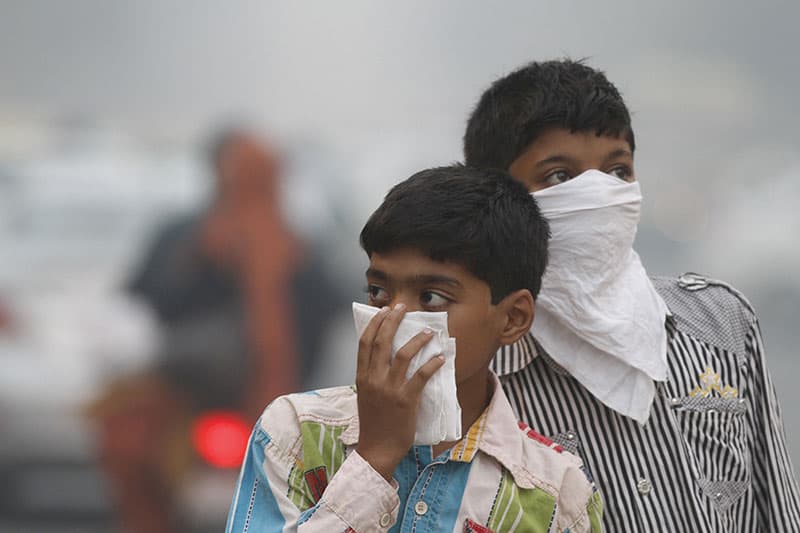LAHORE – Around 90% of the world’s children, under the age of 15 years, breathe air that is polluted enough to put their health and development at serious risk.
A recent WHO report on air pollution and child health attributed the daily exposure of these some 1.8 billion children to both ambient (outside) and household air pollution severely compromising their health and many a times leading to death.
An estimated number of 600,000 children were cited to had died, in 2016 only, from acute lower respiratory infections caused by polluted air.
Emphasizing that clean air can help protect quality of life and the life itself of many of the children, mainly pertaining to low- and middle-income countries, compilers of the report mentioned that air pollution also impacts neurodevelopment and cognitive ability of the affected children.
Children who have been exposed to high levels of air pollution may be at greater risk for chronic diseases such as cardiovascular disease later in life.
Atmospheric pollution established to trigger asthma and childhood cancer was reiterated to be poisoning millions of children and ruining their lives.
https://en.dailypakistan.com.pk/headline/pakistan-in-panic-as-smog-returns/
As per the report, pregnant women are exposed to polluted air, they are more likely to give birth prematurely, and have small, low birth-weight children.
Dr Tedros Adhanom Ghebreyesus, WHO Director-General commenting on the report said vulnerability of children to air pollution was inexcusable.
“Every child should be able to breathe clean air so they can grow and fulfil their full potential,” he said.
One reason why children are particularly vulnerable to the effects of air pollution is that they breathe more rapidly than adults and so absorb more pollutants.
They also live close to the ground, where some pollutants reach peak concentrations at a time when their brains and bodies are still developing.
Newborns and young children are also more susceptible to household air pollution in homes that regularly use polluting fuels and technologies for cooking, heating and lighting.
“Air Pollution is stunting our children’s brains, affecting their health in more ways than we suspected,” said Dr Maria Neira, Director, Department of Public Health, Environmental and Social Determinants of Health at WHO.
The researcher, however, also referred to many straight-forward ways to reduce emissions of dangerous pollutants and mentioned that WHO is supporting implementation of health-wise policy measures like accelerating the switch to clean cooking and heating fuels and technologies, promoting the use of cleaner transport, energy-efficient housing and urban planning.
“We are preparing the ground for low emission power generation, cleaner, safer industrial technologies and better municipal waste management,” she added.














